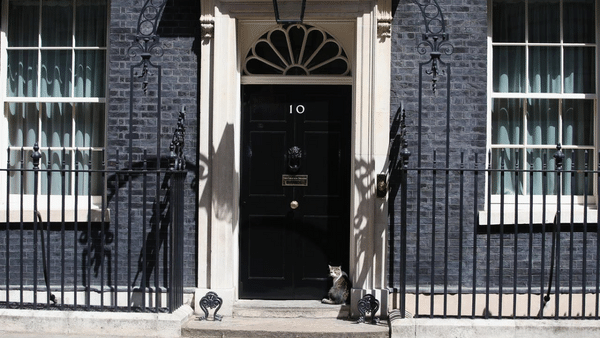Are we increasingly berating others to escape from the grim reality of an unjust social and economic system? A couple of recent events indicate that such a phenomenon may indeed be taking place.
The first was the news reported not so long ago that attacks on disabled people have increased dramatically over the past few months, with research from Scope showing that the number of disabled people experiencing hostility has increased by over 40 per cent in the last 4 months alone. Scope, Mencap, RNIB and others argue that this kind of antagonism has been driven in part by some in the media who are intent on framing disabled people as benefit scroungers.
The second event was on Radio 4’s PM show. Invited onto the programme to comment on the latest increase in unemployment figures, a young man in the midst of looking for work was ridiculed by phone-in callers and accused of not trying hard enough to secure a job. A similar episode was on Nicky Campbell's Radio 5 show, where a caller who was describing her problems with personal debt was forced to defend her family’s spending patterns against a barrage of questions from an unrelenting Edwina Currie. The lady was eventually reduced to tears.
The kind of hostility witnessed in these examples appears to be part of a worrying trend of rising resentment against the vulnerable and needy in our society. 25 per cent of those surveyed in the latest British Social Attitudes survey, for instance, said that the reason people live in need is because they are lazy or lack will power. Twice as many said the reason why children live in poverty is because their parents don’t want to work. Whether it’s the unemployed, the disabled, or even an entire Mediterranean country, the sport of apportioning blame seems to have become a favourite past-time for an increasing number of us. As Miranda Sawyer succinctly put it in last week’s Observer, “are we all Curries underneath?”
Perhaps. But the bigger question we should be asking is what is it exactly that's driving this 'Curry complex'? One explanation, as I noted in a previous blog, lies in our craving to legitimise and make sense of an unjust and unpredictable system, something that has been termed by many as a “just world bias”. In short, we take comfort from blaming others for their misfortunes because it allows us to believe that we won’t face the same circumstances in the future. We're simply too hard-working and honest to be unemployed, unhappy and in debt.
Since I wrote that blog, Duke University and the University of Waterloo have published a research paper pulling together a number of studies that give this hypothesis further grounding. The article’s authors, Aaron C. Kay and Justin Friesen, argue that we tend to rally to the defence of our systems when they appear threatened. They highlight the debacle of the preparation and response to Hurricane Katrina as one of the clearest examples of this kind of behaviour. Rather than laying the blame at the door of FEMA, the agency with a remit to prepare for and to mitigate the damage of hurricanes, people surprisingly tended to criticise the very victims of the disaster. Another interesting example is that of people’s reactions to the pay differentials between men and women. Having been told that men’s salaries are 20 per cent higher than women’s, participants in one study said that this was a result of differences in abilities between the sexes, rather than unfair pay arrangements.
The biggest insight from the paper is the finding that “the less control people feel over their own lives, the more they endorse systems and leaders that offer a sense of order”. This is perhaps one reason for the sizeable public support for the Government’s welfare reform programme, as well as for the high level of personal satisfaction ratings enjoyed by David Cameron. Indeed, Prospect and YouGov only this week published findings from a national poll which showed 74 per cent of people think that we spend too much on welfare and that the government should cut the level of benefits.
All in all, it appears as though these bleak economic times have turned many of us into defenders of our system rather than the constructive critics we ought to be. Albeit unknowingly for some, and with clear exceptions to the rule. There is no doubt that this way of thinking about the world – about our perceptions of the way our system works and about how much people can be held responsible for their circumstances – will ultimately lead to negative consequences for those already suffering misfortune. If we can’t come to recognise these cognitive traps and work to overcome them, it’s likely that these groups will only become more marginalised in the years ahead. And bear mind, we won't be out of the woods for a while longer yet.
Related articles
-
Design for Life: six perspectives towards a life-centric mindset
Joanna Choukeir Roberta Iley
Joanna Choukeir and Roberta Iley present the six Design for Life perspectives that define the life-centric approach to our mission-led work.
-
Inventing meaning and purpose: a politics award for our times
Ruth Hannan
Ruth Hannah is inspiring you to submit your creative and courageous political project to the Innovation in Politics Awards 2022.
-
How can we cultivate healthier and happier communities?
Ella Firebrace Riley Thorold
How might we look to our futures and shape what it means to lead healthier and happier lives?




Join the discussion
Comments
Please login to post a comment or reply
Don't have an account? Click here to register.
And yet, according to the Charities Aid Foundation charitable donations went up last year. Those seeking to volunteer is also up, more people are crowd funding new ideas than ever before, so be very careful what story you are weaving here.
As we find time and time again, stories are never as simple as 'we are all getting nastier'. Though agree attacks on the disabled is hard to fathom.
In addition, please don't start this Edwina Curry thing again. The idea of the Curry Complex is exactly part of the same snideness and cheap laugh journalism which fuels this type of one sided debate in the first place. It is unedifying and unhelpful.
Hilary